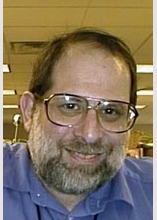By Bruce S. Ticker

This past Wednesday, Malaysia’s 94-year-old prime minister Mahathir Mohamad, ventured to the northern edge of New York’s Upper West Side – home to an estimated 70,000 Jews – and proclaimed: “Why is that I can’t say something against the Jews, when a lot of people say nasty things about me, about Malaysia, and I didn’t protest, I didn’t demonstrate?”
Nearly two weeks earlier, the U.S. Department of Education ordered the two universities in North Carolina’s Research Triangle to revamp a joint Middle East program after determining that it offered students a biased curriculum that comprised distortions about Israel.
The world leader who once declared that he is “glad to be labeled anti-Semitic” joined other heads of state who addressed students as part of Columbia University’s World Leaders Forum; they were in town for the 74th session of the United Nations General Assembly.
The university leadership knew Mohamad’s history, according to the Jewish Telegraphic Agency. It is on record that he has called Jews “hook-nosed,” said they “rule the world by proxy” and questioned the number of Jews murdered in the Holocaust.
And when he took questions at Columbia, he denied questioning how many Jews died during World War II, and then said, “I have not disputed them, but I have said that ‘Who determined these numbers?’ If it is somebody who is in favor, you get one figure, if somebody is against, you get another figure…I accepted that there was a Holocaust, that there were many Jews killed, and in fact at one time I was very sympathetic towards them during the war, when you were not around, but I was around at that time.”
So how did this bring enlightenment to Columbia? Prior to Mohamad’s appearance, Columbia President Lee Bollinger characterized his views as “abhorrent,” and explained in a letter: “Nevertheless, it is in these instances that we are most strongly resolved to insist that our campus remain an open forum and to protect the freedoms essential to our University community.”
Brian Cohen, executive director of Columbia/Barnard Hillel, dubbed the invitation “an affront to Jewish students and to anyone committed to equality and dignity.” Jonathan Greenblatt, the national director of the Anti-Defamation League, said it best: “Of the nearly 200 heads of state in New York this week, surely there are other, non-hate-espousing leaders who could be featured.”
Near Raleigh, N.C., is the Trump administration attempting to retaliate against advocates for the poor Palestinians? Sounds like it if you listen to Zoha Khalili, a staff lawyer for Palestine Legal.
“They really want to send the message that if you want to criticize Israel, then the federal government is going to look very closely at your entire program and micromanage it to death,” she told The New York Times. “(It) sends a message to Middle Eastern studies programs that their continued existence depends on their willingness to toe the government line on Israel.”
I criticize Israel, as do many Jews who yet support Israel’s existence. On those occasions, we base our criticism on facts and find far more to dispute about the Palestinians.
Khalili is likely distorting the Education Department’s accusations just as advocates for the Palestinians routinely distort the situation in Israel. The New York Times reported that Education Secretary Betsy DeVos last June ordered an inquiry into whether a joint program operated by Duke University and the University of North Carolina misused $235,000 it received in Title VI grants.
U.S. Rep. George Holding asked DeVos to investigate if federal funding was used to host a conference that he said featured active members of the Boycott, Divestment and Sanctions movement against Israel and featured panelists who “distorted facts and misrepresented the complex situation in Gaza.”
A few weeks ago, the department directed the consortium to submit a revised schedule of events it intended to support, a complete list of the courses it provides and the professors working in its Middle East studies program, according to the Times.
In a letter to university officials, Robert King wrote that his department “believes” the Middle Eastern studies consortium “has failed to carefully distinguish between activities lawfully funded under Title VI and other activities” that are “plainly unqualified for taxpayer support.” King is the assistant secretary for post-secondary education.
The University of North Carolina released a statement pledging to cooperate with the Education Department, the Times reported.
None of this surprises us. These episodes in NYC and North Carolina are only the two latest instances to come to light in which ludicrous activity against Jews and Israel is facilitated at a long list of colleges and universities.
How did this situation spiral out of control? Where is the oversight?
It has to stop. DeVos is doing the right thing as part of an effort to root out anti-Israel activity, despite harsh criticism of her and her boss on many other issues. To their credit, Republicans are as articulate in defending Israel as are Democrats on domestic issues such as health coverage and gun control.
The Education Department’s effort is a step in the right direction for reducing anti-Israel activities in academia. What else can be done?
Morton A. Klein, national president of the Zionist Organization of America, issued this statement: “Columbia’s donors and alumni, who might once have understandably felt inclined to bestow gifts upon the university that once gave them a superb education, should cease writing checks to Columbia University until it apologizes for its conduct and comprehensively stops enabling Jew-haters and advocates of Israel’s destruction.”
“Speak up,” writes Naomi Adler in The Philadelphia Inquirer of anti-Semitism generally. “To stand up against anti-Semitism, we must…do better to educate ourselves and each other.”
Adler, who is president and CEO of the Jewish Federation of Greater Philadelphia, adds, “We cannot allow these comments to linger and these ideas to fester.”
*
Bruce Ticker is a freelance writer based in Philadelphia.